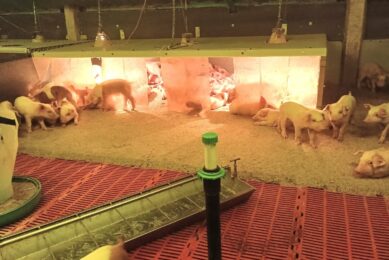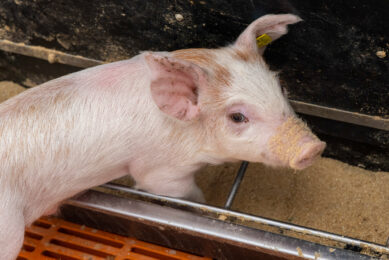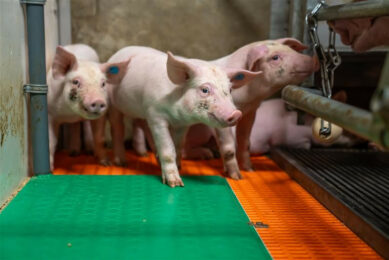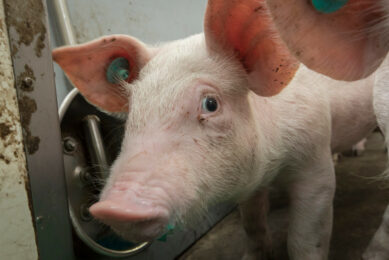Pain management for piglet castration – what’s the problem?
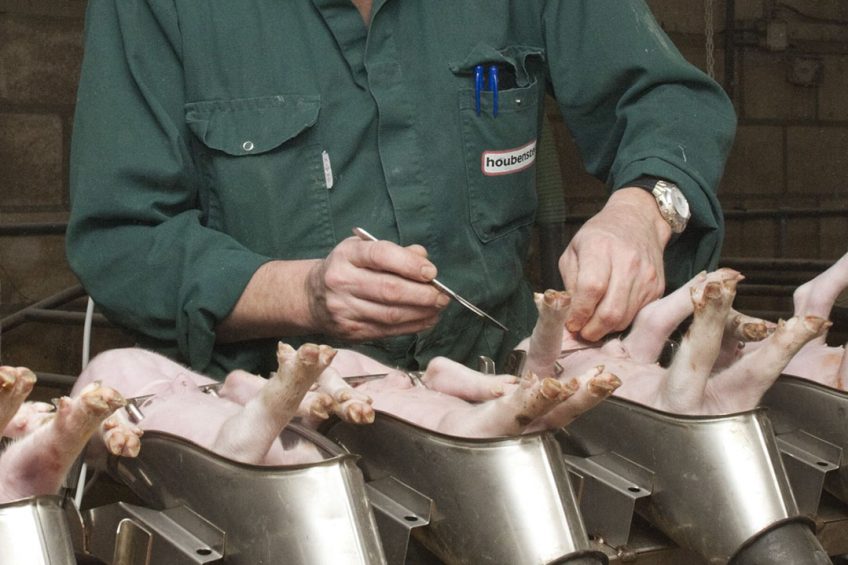
In the United States, the use of pain management protocols around castration is relatively minimal. Why is that? Dr Monique Pairis-Garcia, health and welfare expert, embarked on a study amongst veterinarians to figure that out. And how can the situation be improved?
It is well documented that piglets experience pain as a by-product of castration. Pain sensitivity research has documented both short and long-term changes to the piglet’s physiology, performance and behavioural response.
To manage this pain, local anaesthetics and analgesics such as non-steroid anti-inflammatory drugs (NSAIDs) have been identified in research as an effective means to mitigate post-procedural pain. Although data prevalence is lacking on the US swine industry, on-farm experience suggests that administration of pain management protocols specific to castration is minimal.
Extra-label administering drugs to pigs
In addition, the US maintains no state or federal legislation requiring that pain relief be provided to piglets at castration and no drugs are currently approved for pain relief in pigs. Although these challenges exist, US veterinarians do have options to provide pain relief by administering drugs in an extra-label manner.
Veterinarians are often viewed by the public as animal welfare stewards, particularly in regards to alleviating pain and suffering. Given this, we are interested in identifying what factors influence swine veterinarian decision-making in regards to pain management for piglet castration.
Focus groups on castration
To accomplish this, swine veterinarians were recruited to participate in 1 of 3 focus groups at the AASV annual meeting. Demographic information was collected prior to the start of focus group discussion and included gender, age, race, current role, and the number of years engaged in the swine industry and total sow inventory under direct oversight. Discussions were prompted using 6 predetermined base questions and 8 predetermined follow-up questions.
The results from this study identified 3 factors influencing pain management use. These factors included: the lack of approved pain relieving products that have been validated for efficacy, economic limitations and challenges associated with administering analgesic drugs to pigs and deficient guidelines and training for veterinarians to develop pain management protocols.

What are the alternatives for castration? The IPEMA group took a look earlier this year
Product, challenges and guidelines
In conclusion, managing pain specific to castration is viewed as important by veterinarians in regard to safeguarding animal welfare. However, the lack of an approved product for controlling piglet pain, coupled with economic challenges and insufficient science-based guidelines, makes it challenging for swine veterinarians to advocate for and develop pain management protocols for castration on US swine farms.
Validation of physiological and behavioural endpoints to quantify pain is the first step needed to obtain Food and Drug Administration (FDA) approval for a drug specific for pain relief in piglets. In addition, development and access to science-based guidelines in which veterinarians can use to develop pain management protocols is needed to ensure pain associated with castration can be successfully managed and mitigated.
More information on piglet castration is welcome
But we need more information! Although this work has given us a perspective on what factors influence US swine veterinarians, we want to understand this issue on a global scale! If you are a swine veterinarian or producer and interested in participating in our work, there is still time to participate in our survey. Your experience is critical in moving forward on ensuring proper pain management on-farm and we appreciate your time and effort in completing the survey below.



